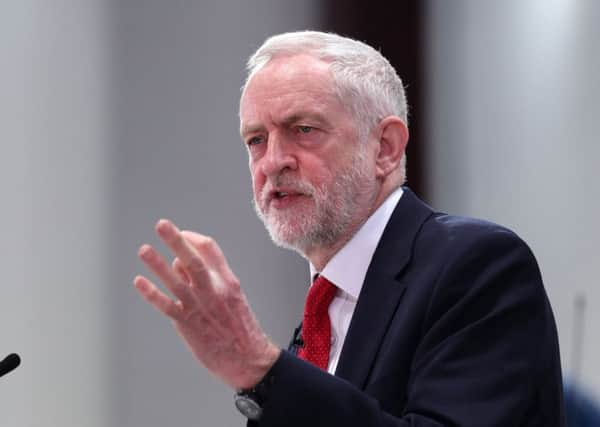Business leaders want more details on trade despite Corbyn's customs union speech


As Cabinet Ministers prepare for a meeting on Thursday where they will finalise the Government’s position ahead of a major Brexit speech from Theresa May on Friday, Stephen Martin, director general of the Institute of Directors, said the “slow” and “laborious” process of extracting answers on post-Brexit trade arrangements had left businesses in limbo about their future plans.
“While Labour has firmed up their position on customs today, there are still many unanswered questions from both Labour and the Conservatives about the UK’s future relationship with EU, and this is making it hard for businesses to plan,” Mr Martin said.
Advertisement
Hide AdAdvertisement
Hide AdBut with Labour leader Mr Corbyn having now set out his belief that a new customs union with the EU to ensure tariff-free trade post-Brexit is the best answer to future trade policy, he has taken a starkly different stance to the Prime Minister ahead of those Cabinet talks later this week.
Mr Corbyn said his call was an “appeal to MPs of all parties” to “put the people’s interests before ideological fantasies” to protect jobs, living standards and the economy and avoid a hard Irish border.
Setting out Labour’s policy at a speech in Coventry, Mr Corbyn said: “Every country, whether it’s Turkey, Switzerland, or Norway that is geographically close to the EU, without being an EU member state has some sort of close relationship to the EU. Some more advantageous than others.
“And Britain will need a bespoke, negotiated relationship of its own.”
Advertisement
Hide AdAdvertisement
Hide AdHe went on: “Labour would seek a final deal that gives full access to European markets and maintains the benefits of the single market and the customs union, as the Brexit Secretary David Davis promised in the House of Commons with no new impediments to trade and no new reduction in rights, standards and protections.”
A new, comprehensive UK-EU customs union would also help avoid “any need whatsoever” for a hard border in Northern Ireland, Mr Corbyn said.
Mr Corbyn’s speech was welcomed by unionists.
Paul Everitt, chief executive of ADS, the trade association for the aerospace, defence, security and space sectors, said Mr Corbyn’s model for trade would “put businesses in the best possible position to compete after Brexit”.
And Tim Roache, general secretary of the GMB union, said: “The Government’s approach to Brexit would have a negative impact on many industries where our members work. By committing to a customs union, Labour is showing clear leadership that would safeguard our ports, transport firms and manufacturing sectors.”
Advertisement
Hide AdAdvertisement
Hide AdThe new president of the National Farmers’ Union, Minette Batters, used her maiden Westminster address to MPs and industry representatives yesterday, to warn: “This is not a time to turn our back on the EU market, it remains a crucial market for British farmers, with 40 percent of our lamb, 80 percent of our dairy exports and 75 percent of our wheat and barley exports currently going into Europe.
“It is vital we have zero-tariff, frictionless trade with the EU marketplace,” she said.
Despite Mr Corbyn’s speech, Adam Marshall, director general of the British Chambers of Commerce, said far greater detail was needed from politicians about the merits of their policies, saying Mr Corbyn’s position on trade, like the Government’s, “feels more political than practical”.
“The priority must be to delve far more into the detail and negotiate a pragmatic deal on both customs and regulatory recognition that allows businesses to get their goods across borders as quickly as possible” Mr Marshall said.